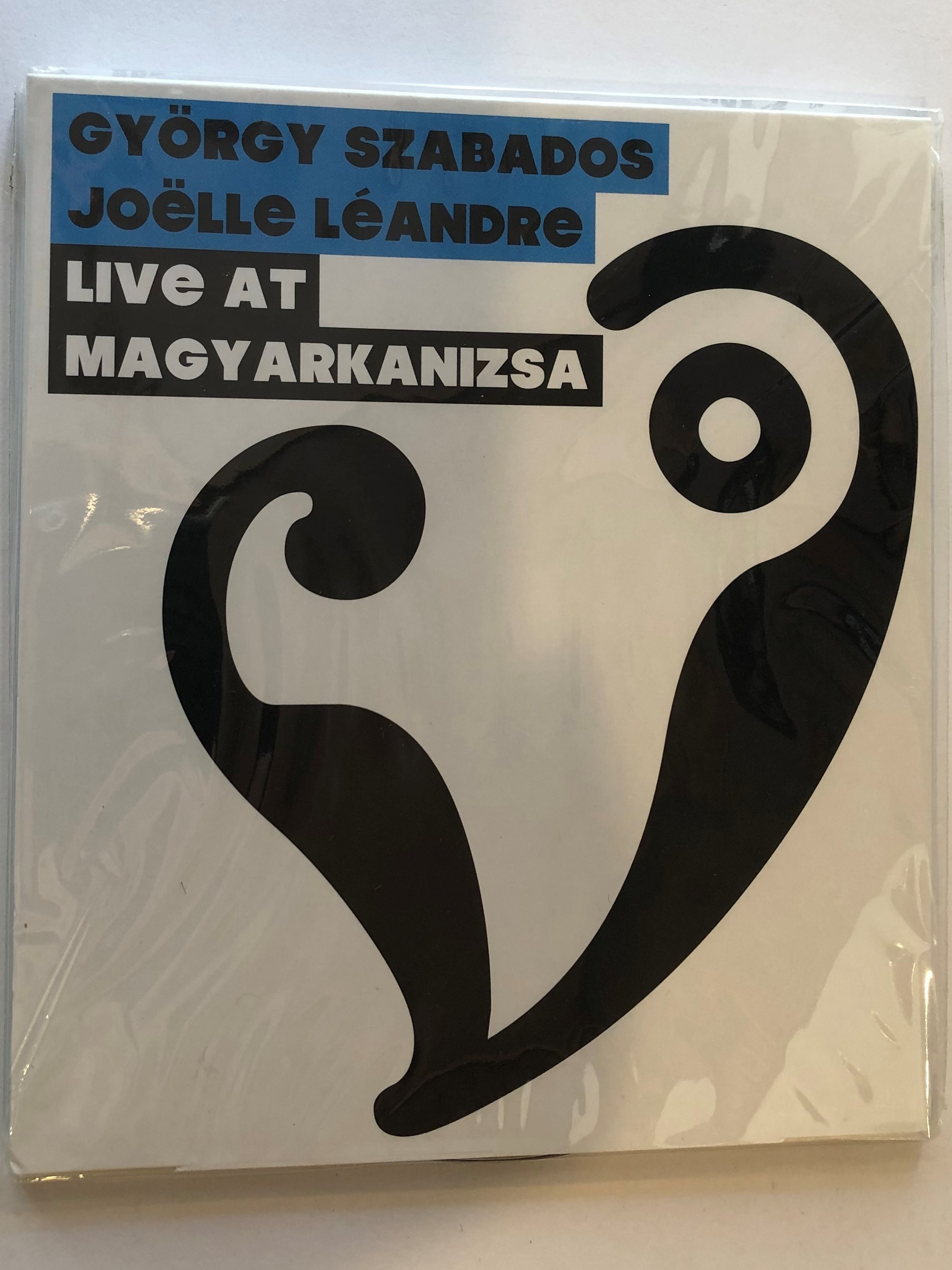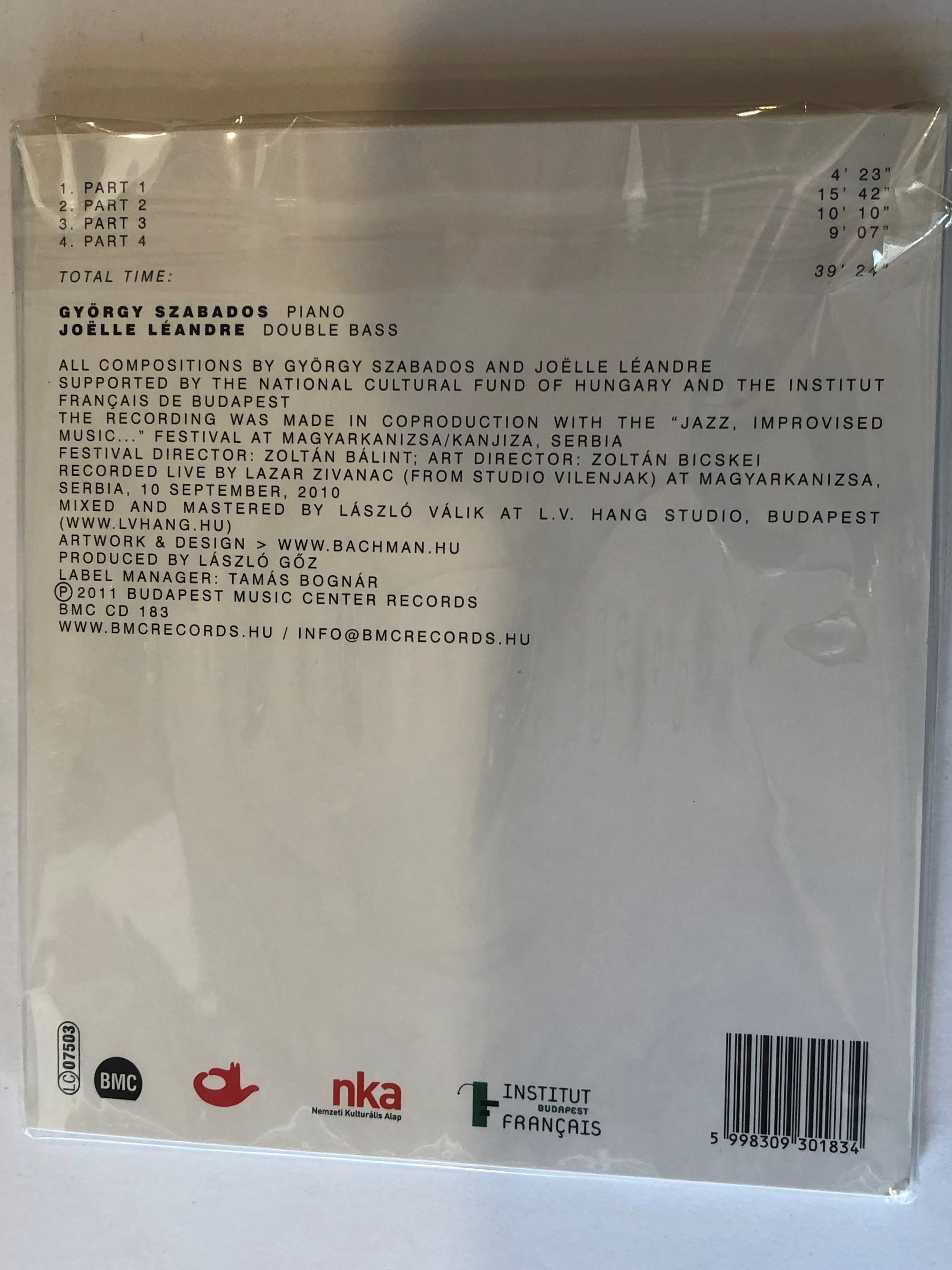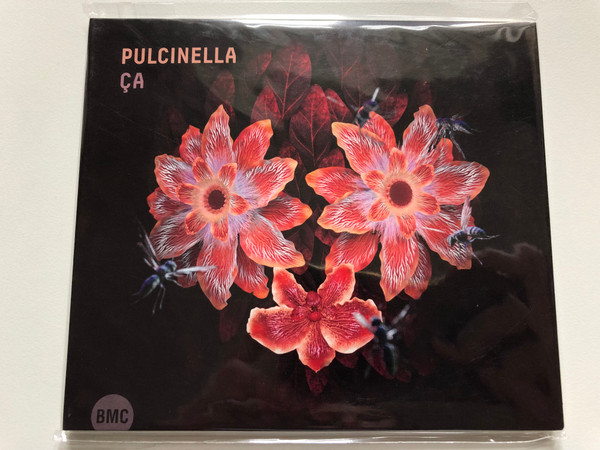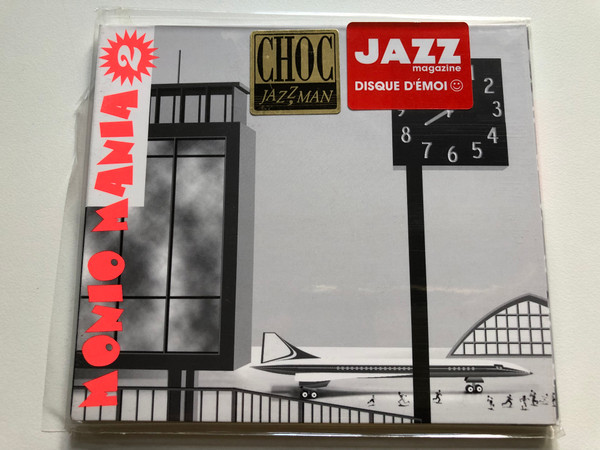Description
György Szabados, Joëlle Léandre – Live At Magyarkanizsa / Budapest Music Center Records Audio CD 2011 / BMCCD183
UPC 5998309301834
Product Details:
Joëlle Léandre - nagybőgő
Szerzők: Szabados György és Joëlle Léandre
Élő felvétel: Lazar Zivanac (Studio Vilenjak), Magyarkanizsa, Szerbia, 2010. szeptember 10.
Keverés és master: Válik László, L.V. Hang Stúdió, Budapest
Joëlle Léandre (nagybőgő) rendkívül érzékeny befogadó, a hangszerek adottságaiból fakadóan elsősorban Szabados által teremtett univerzumba mindazonáltal nem egyszerűen beköltözik, hogy belakja, hanem játéka által teljesen átformálja azt. A szabad improvizáció egy olyan interakcióban árad, amely elsőre nem magától értetődő, de egyáltalán nem szertelen. A pillanatban születik a zene, de nem azért, hogy utána semmivé váljon: a kétvonalas E-ről indított ’voyage’ már az első részben egészen intenzívvé válik, a feszültséget Szabados akkordjátéka líraian oldja fel, hogy a túlfűtött szexualitás hangjait Léandre némi dacot és megadást kifejezően fejezze be.
A halál nélküli zene egyszerűen nem létezik. A hangok megszületnek és aztán elhalnak, eltemetvén a ritmusuk és periodicitásukkal létrehozott szerkezetet. De Szabados nem így gondolt a zenére: szavainak értelme szerint ablakot nyit az örökkévalóságra és magát médiumként használva önti egy pillanatnyi formába az állandó lét sodrását.
És valóban, ez a korong telis tele van élettel, minden részével, a feszültségeket néhol már csak az emberi hangokkal vagy éppen énekkel (Part 4) oldani képes magasságokkal és mélységekkel, a harangok önreferenciájával (Part 3), de leginkább két nagyszerű ember találkozásával.
Tracklist:
| 1 | Part 1 | 4:23 |
| 2 | Part 2 | 15:42 |
| 3 | Part 3 |
10:10 |
| 4 |
Part 4 | 9:07 |
More Details:
- Art Direction [Art Director], Liner Notes – Zoltán Bicskei
- Artwork, Design – WWW.BACHMAN.HU
- Composed By – György Szabados, Joëlle Léandre
- Double Bass – Joëlle Léandre
- Liner Notes [Translated By] – Richard Robinson (3)
- Management [Festival Director] – Zoltán Bálint
- Management [Label Manager] – Tamás Bognár
- Mixed By, Mastered By – Válik László
- Piano – György Szabados
- Producer [Produced By] – László Gőz
- Recorded By – Lazar Zivanac
About Szabados György:
A well-known character of contemporary improvised music all over Europe, György Szabados was born in Budapest on 13 July 1939. His father was a physician, his mother a singer and singing teacher. His extraordinary talents, his improvising piano playing and constant eagerness to express himself and compose showed at a very early age. His musical studies were determined by these unfolding abilities, and he completed his musical studies privately. In the meantime, fulfilling the wish of his father, he also took a degree as a doctor.
The evolvement of his career was seriously hindered by the extremely closed, ideologically restricted intellectual and artistic life in Hungary under the socialist regime, when all alternative attitudes and aesthetics were considered as dangerous therefore they were forbidden and put down. Just as well as in Europe, in Hungary it was jazz that provided a paradigm for the evolution of living musicality, consequently, Szabados himself found jazz the language through which his improvising abilities could be articulated.
Nevertheless, Szabados is not a jazz musician in the regular sense of the word. His music is extraordinarily dynamic, European and Hungarian at the same time viewed from both the aspect of traditionality and modernity, filled with the freshness of spontaneity and the power of intellect.
It was not earlier than 1972 that he finally managed to break out of isolation with the help of jazz. He won the Grand Prize at the San Sebastian Jazz Competition in the category of Free Jazz, which gave him reason to rejoice, but also caused him trouble. Eventually he was able to give more concerts, especially at university jazz clubs. He founded a contemporary music workshop, where he introduced a number of students to the world of improvised contemporary music. His approach to music is rooted in his belief in the harmony of free improvisation and composition, and in music being a natural language and man a sophisticated mediator.
From the 1980s Szabados was able to give concerts abroad on a regular basis, make recordings and pursue a career as a creative and acknowledged musician. His powerful and unique musical vocabulary constitutes an individual direction in the music of today. He regularly publishes writings on musical subjects.
He has performed together with Roscoe Mitchell and Anthony Braxton (with whom he made recordings as well), with Peter Kowald, Johannes and Connie Bauer, Fred van Hove, Evan Parker, Jiri Stivin, Hans-Ludwig Petrowsky, and Vladimir Tarasov to name just a few. In recognition of his work he was given the highest Hungarian music award, the Ferenc Liszt Prize in 1983. In 2001 he also received the Prize for the Hungarian Arts and the Gábor Szabó Lifetime Achievement Award by the Hungarian Jazz Federation.
Szabados has composed music for a ballet (Iván Markó), for dance theatre (Joseph Nadj), a piece commemorating the 1956 Hungarian Revolution, ritual music, several solo piano and chamber pieces. In succession to his contemporary music workshop he established the improvising orchestra named MAKUZ (Orchestra of the Hungarian Royal Court), which became the interpreter of his ensemble compositions.






















